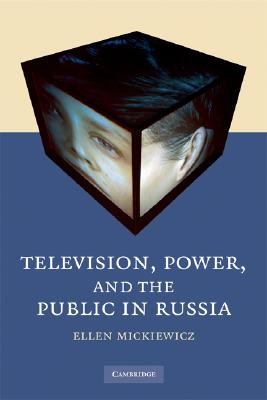
- We will send in 10–14 business days.
- Author: Ellen Mickiewicz
- Publisher: Cambridge University Press
- ISBN-10: 0521716756
- ISBN-13: 9780521716758
- Format: 15.5 x 22.7 x 1.4 cm, softcover
- Language: English
- SAVE -10% with code: EXTRA
Reviews
Description
The Russian media are widely seen to be increasingly controlled by the government. Leaders buy up opposing television channels and pour money in as fast as it hemorrhages out. As a result, TV news has become narrower in scope and in the range of viewpoints which it reflects: leaders demand assimilation and shut down dissenting stations. Using original and extensive focus group research and new developments in cognitive theory, Ellen Mickiewicz unveils a profound mismatch between the complacent assumption of Russian leaders that the country will absorb their messages, and the viewers on the other side of the screen. This is the first book to reveal what the Russian audience really thinks of its news and the mental strategies they use to process it. The focus on ordinary people, rather than elites, makes a strong contribution to the study of post-communist societies and the individual's relationship to the media.
EXTRA 10 % discount with code: EXTRA
The promotion ends in 17d.06:55:59
The discount code is valid when purchasing from 10 €. Discounts do not stack.
- Author: Ellen Mickiewicz
- Publisher: Cambridge University Press
- ISBN-10: 0521716756
- ISBN-13: 9780521716758
- Format: 15.5 x 22.7 x 1.4 cm, softcover
- Language: English English
The Russian media are widely seen to be increasingly controlled by the government. Leaders buy up opposing television channels and pour money in as fast as it hemorrhages out. As a result, TV news has become narrower in scope and in the range of viewpoints which it reflects: leaders demand assimilation and shut down dissenting stations. Using original and extensive focus group research and new developments in cognitive theory, Ellen Mickiewicz unveils a profound mismatch between the complacent assumption of Russian leaders that the country will absorb their messages, and the viewers on the other side of the screen. This is the first book to reveal what the Russian audience really thinks of its news and the mental strategies they use to process it. The focus on ordinary people, rather than elites, makes a strong contribution to the study of post-communist societies and the individual's relationship to the media.


Reviews